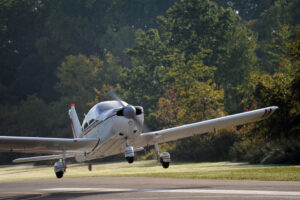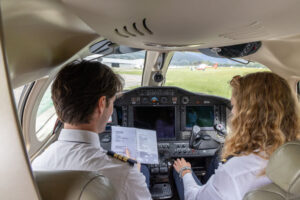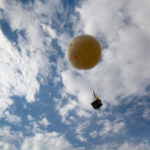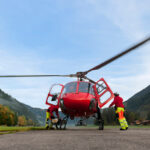There’s more than one type of pilot when aviation weather or mechanical stressors arise
Do you have the right stuff to fly an airplane? I’m not talking about whether you used to sit at the cool kids’ table for lunch. I mean, are you the kind of person who can stay calm during an inflight emergency? When faced with severe aviation weather or a sudden mechanical failure, do you handle it like a pro, or do you find yourself unable to make even the most basic decisions, like whether to turn left or right?
Aviation is full of stressful situations; the best pilots can handle them and move on. Unfortunately, stress is cumulative, and when it is not managed quickly and effectively, it builds up and affects everything from judgment to action, leading to errors and, worse, aviation incidents and accidents.
What is stress anyway? A commonly accepted definition is Lazarus’s theory of stress: “A condition or feeling experienced when a person perceives that demands exceed the personal and social resources the individual can mobilize.” No wonder they say that stress is an everyday event! I experience that feeling daily, especially as a professional pilot with four kids and an aging father.
Small amounts of stress can be good for us, providing benefits like increased alertness and improved concentration. But high levels of stress, especially accumulated stress, lead to increased errors, poor decision making and judgment, loss of situational awareness, and confusion. It sounds like a bad combination at 35,000 feet, but even worse when you’re 100 feet off the ground.
Events that cause stress are called stressors, and they are quite common, even during a routine flight. When things get ugly, you better know how to stay calm under pressure. Stressors can be significant, like aviation weather, mechanical failure, or ATC delays or issues, but they can also be relatively minor, like aircraft noise, vibrations, and constant radio chatter.
Stress can be brought with you on a flight even when it has nothing to do with aviation. For example, do you think about your upcoming pilot medical and your blood pressure issues? Is your checkride with the FAA next month? Do you fly on the backside of the clock? Have a schedule that can include trips at a moment’s notice?
Even the personality type of the Captain you are flying with can be a stressor. Captains can cause stress or reduce stress, depending on the kind of “stuff” they have. Captains who are active, warm, confident, competitive, and expecting excellence are those who are perceived to have the “right stuff” (think Chuck Yeager). Be that Captain.
Captains with the “wrong stuff” are arrogant, authoritarian, emotionally invulnerable, impatient, and irritable. Captains with “NO stuff” are unassertive, self-subordinating, have low self-confidence, and average interpersonal skills.
I think most professional pilots have flown with Captains from all three categories. There is no question which pilots create the safest environment, but there are ways to handle all kinds of stress, whether pilot induced or from external factors that seem out of your control. Preparation, anticipation, planning, communicating, CRM, and time management are some of the best ways to conquer stress.
Sleep, diet, and exercise are also critically important in preparing for a safe flight, as is competence in SOPs and emergency procedures for obvious reasons. Planning for marginal aviation weather or potential mechanical issues will help you keep your “cool” when things unexpectedly turn ugly. It doesn’t hurt to have a personality with the “Right Stuff” to help you get your passengers home safely!
RELATED READING










